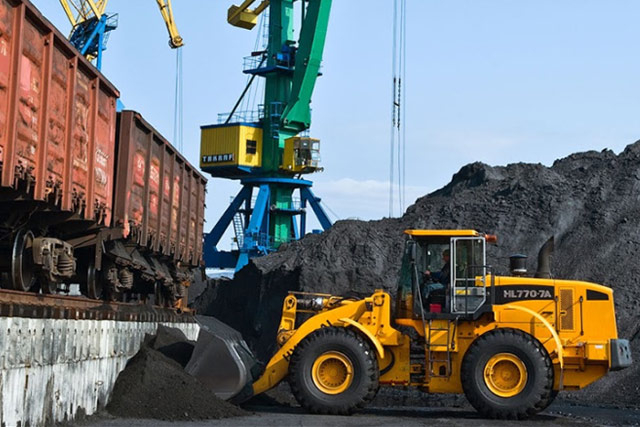The government’s strategy to slash coal imports and improve domestic production was affected by poor logistic support and disrupted supply chains towards the end of the last financial year 2019-20. Despite having the world’s fourth-largest coal reserves in the region, India imported around one-fourth of its domestic coal requirements in the last fiscal period , mainly due to a shortfall in coal output and logistical constraints in evacuation infrastructure, said Care Ratings. Though coal production in India remained flat – increasing marginally by 0.1% in the FY20, imports increased by 3.3%. Although Coal India has been mandated by the government to replace at least 100 million tons of substitutable imports with domestically produced coal in the ongoing fiscal year, the effect of the nation-wide lockdown may also keep India relying on imports in the current fiscal year.
Coal production remains gloomy in FY21 so far
Mining was classified as an essential industry and allowed to operate during the lock-down period; but despite being operational, domestic coal output decreased by 14.8% in two months of April and May 2020 as demand for steel and power fell by up to 65 percent and the labor force left for its hometown in the aftermath of the pandemic. Even after the lock-down measures were gradually eased in May, there was no significant pick-up in demand for coal. Most manufacturing firms were unable to restart operations due to lack of labor and liquidity, and power plants were not very eager to lift coal due to low demand and high inventories, contributing to a decline in coal production, the study added.
High inventories, low demand put brakes on coal offtake
Inventory of coal in thermal power plants has risen sharply over the last three months, and power utilities are now refraining from buying more coal. Care Ratings said that in order to avoid the risk of coal catching fire and pilgrimage due to high inventories at pitheads, coal miners are likely to reduce their production until record stocks are reduced to mandatory levels.
Meanwhile, Narendra Modi’s government recently permitted commercial coal mining, putting an end to decades-long government monopoly on coal production. Commercial mining seeks to promote competition, transparency and involvement of the private sector through a revenue-sharing mechanism in the coal sector. Opening up coal mining to the private sector is expected to improve domestic output in the medium term, although it will take some time for the country to reduce over-dependence on CIL for its coal requirements, the report added.



































